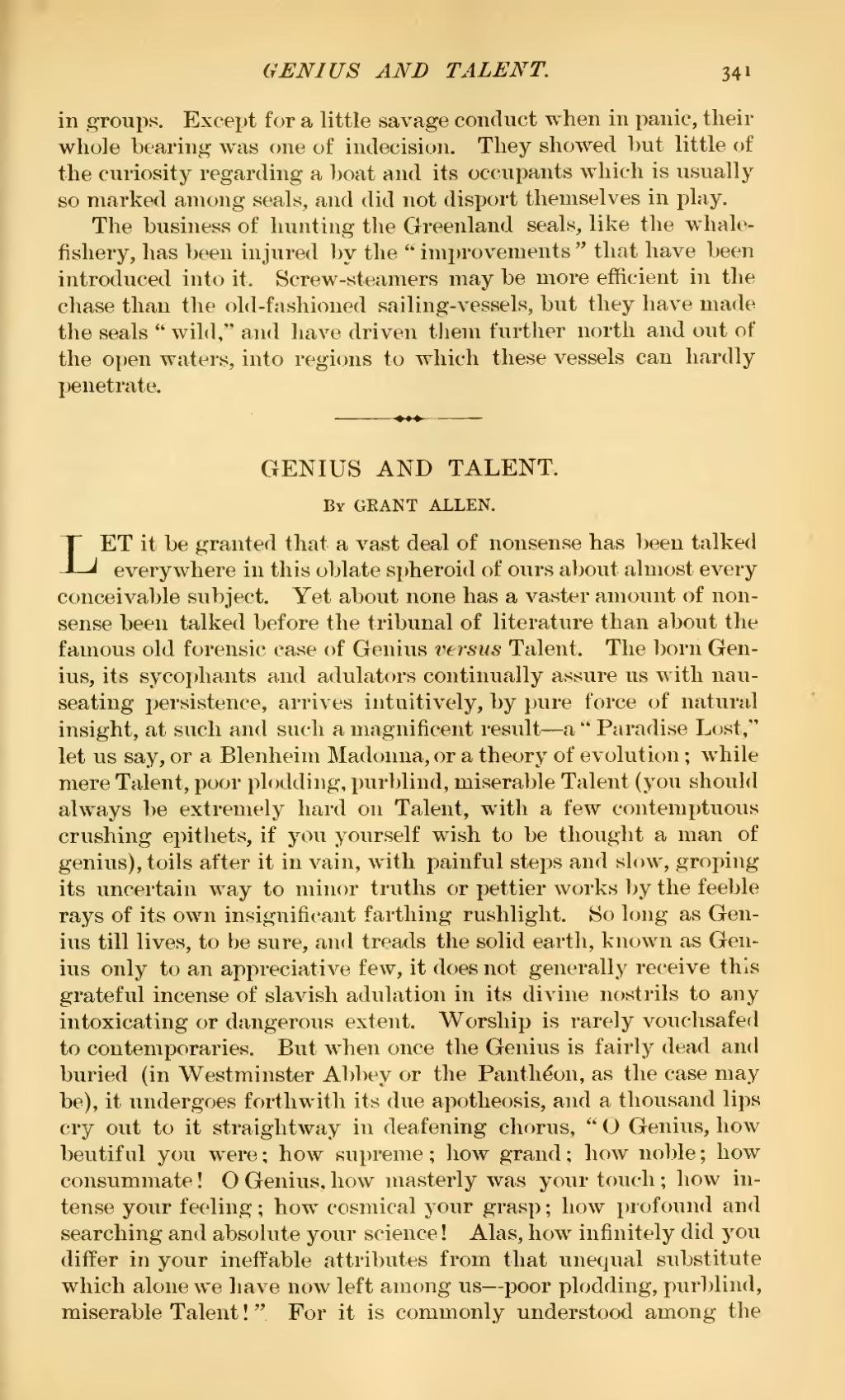in groups. Except for a little savage conduct when in panic, their whole bearing was one of indecision. They showed but little of the curiosity regarding a boat and its occupants which is usually so marked among seals, and did not disport themselves in play.
The business of hunting the Greenland seals, like the whale-fishery, has been injured by the "improvements" that have been introduced into it. Screw-steamers may be more efficient in the chase than the old-fashioned sailing-vessels, but they have made the seals "wild," and have driven them further north and out of the open waters, into regions to which these vessels can hardly penetrate.
| GENIUS AND TALENT. |
By GRANT ALLEN.
LET it be granted that a vast deal of nonsense has been talked everywhere in this oblate spheroid of ours about almost every conceivable subject. Yet about none has a vaster amount of nonsense been talked before the tribunal of literature than about the famous old forensic case of Genius versus Talent. The born Genius, its sycophants and adulators continually assure us with nauseating persistence, arrives intuitively, by pure force of natural insight, at such and such a magnificent result—a "Paradise Lost," let us say, or a Blenheim Madonna, or a theory of evolution; while mere Talent, poor plodding, purblind, miserable Talent (you should always be extremely hard on Talent, with a few contemptuous crushing epithets, if you yourself wish to be thought a man of genius), toils after it in vain, with painful steps and slow, groping its uncertain way to minor truths or pettier works by the feeble rays of its own insignificant farthing rushlight. So long as Genius till lives, to be sure, and treads the solid earth, known as Genius only to an appreciative few, it does not generally receive this grateful incense of slavish adulation in its divine nostrils to any intoxicating or dangerous extent. Worship is rarely vouchsafed to contemporaries. But when once the Genius is fairly dead and buried (in Westminster Abbey or the Panthéon, as the case may be), it undergoes forthwith its due apotheosis, and a thousand lips cry out to it straightway in deafening chorus, "O Genius, how beutiful you were; how supreme; how grand; how noble; how consummate! O Genius, how masterly was your touch; how intense your feeling; how cosmical your grasp; how profound and searching and absolute your science! Alas, how infinitely did you differ in your ineffable attributes from that unequal substitute which alone we have now left among us—poor plodding, purblind, miserable Talent!" For it is commonly understood among the

